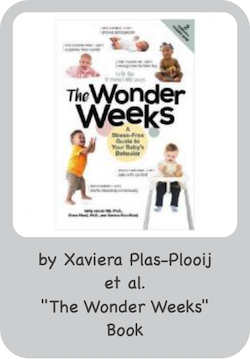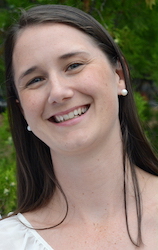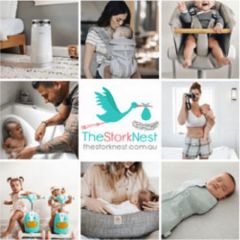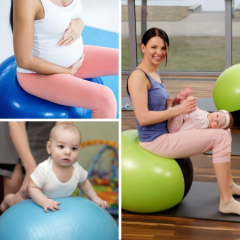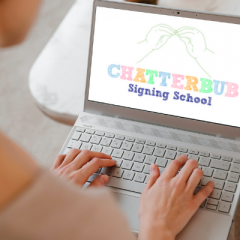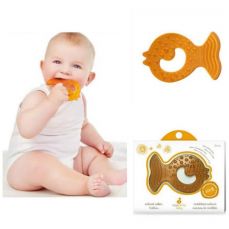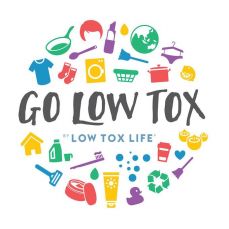Understanding Your Developing 6 to 12 Month Old Work / Play / Leisure, Health Suitable for stages: 6 - 12 Months
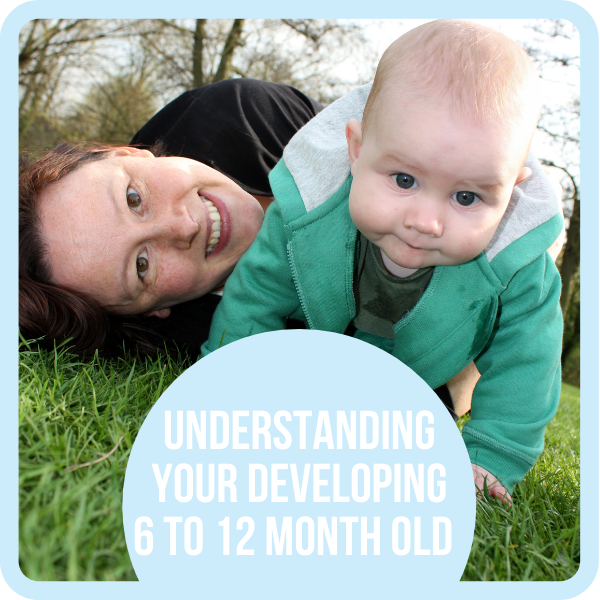

Updated 12 December 2023
This age stage is a hectic time for your baby's social, brain and motor development. It is amazing how different your baby is by 12 months when compared to their 6-month-old selves. Your mostly immobile baby can progress to walking in that relatively small amount of time. All the running around after your baby will have you missing the days where you could put your baby in one spot and know they would still be there when you turned around. You'll also marvel at their energy and wish you had the same amount of natural energy to match them.
Gross Motor Development
Crawling is an important milestone for your baby to pass through for many reasons explained on the Mama OT Blog. Where possible, crawling should be encouraged, even if your baby is trying to skip the crawling phase.
Their motor development typically follows the following progression of skill-building:
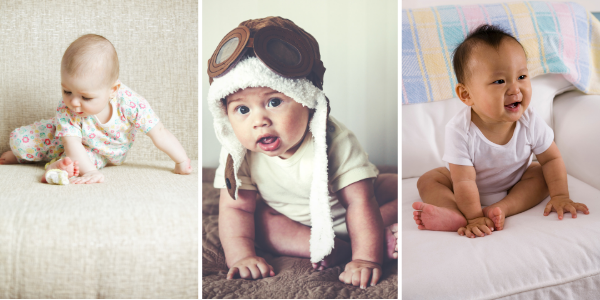
- At around 6 months, they are usually working on their sitting balance and towards being able to sit up unsupported by around their 8th month. It is important that they get free playtime on the floor with some pillows around (just in case they get too top-heavy). Put them on their tummy and see if they can work out how to push their upper body up with their arms into a sitting or semi-sitting position. Try sitting them up and watch them work out how to use their arms to support their upper body, then spot a toy just out of reach. They will quickly work out that their arms are useful to prop themselves up and stop them from falling over while developing core muscle stability and strength.
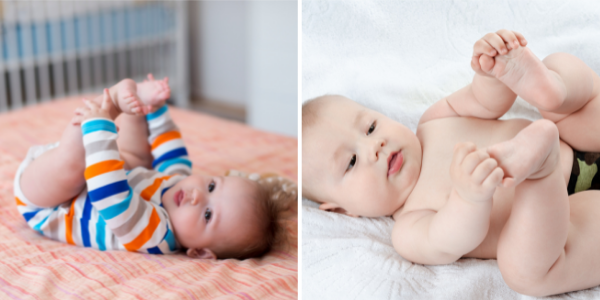
- They will love to practise lifting their legs to grab at their ankles and feet. This works their core muscles to aid in rolling over into a crawling position. It can be fun putting socks on babies this age, as they will instantly work on pulling their socks off to find their feet again. Rattles designed for ankles or built into socks can be a fun toy at this age (you can find them on Amazon Au). The sound made when they move their feet can help them learn about their lower limbs.
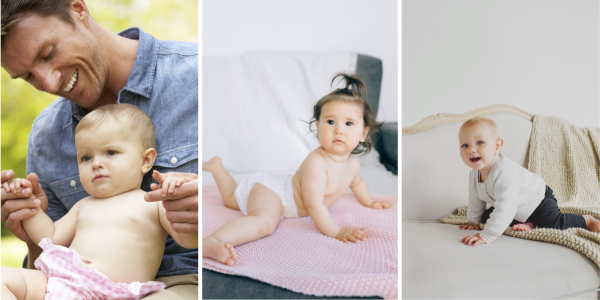
- At around 8 months, they might start to work out crawling (or near enough). Crawling is important for your baby to practise for many reasons explained here on the Mama OT Blog.
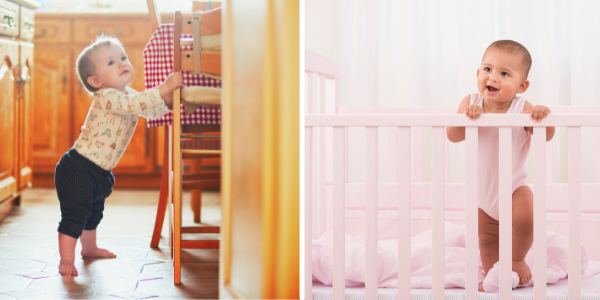
- Crawling leads to finding things to pull themselves into a stand and pivot on their feet when standing, usually to smile at you to make sure you see how clever they are! There is a lot of falling on their bottom at this age, where a soft nappy and or soft flooring can help.
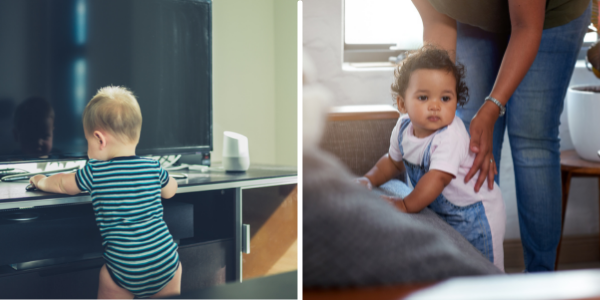
- Practising standing leads to creeping/side-stepping whilst holding onto the support. This is around the time that you can hold their hands, and they will walk forwards between your legs.
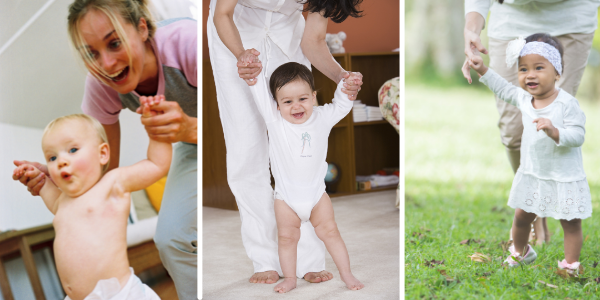
- Sometime around their first birthday, if they have passed the other milestones, they can start to attempt their first steps without needing support. They are still very unsure on their feet and will often fall over, but that won't stop them from doing it again and again until they get it. You now have a toddler on your hands.
Fine Motor/Hand skill development
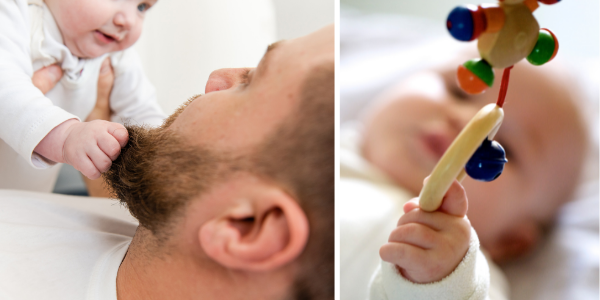
Your baby will also be practising using their hands to mature their grasp to be able to play with and manipulate objects in new ways. They can be fascinated by their hands staring at their hands whilst they endlessly practice moving their fingers and hands in different ways. They can also start to coordinate their hand movements between their two hands and use their eyes to coordinate reaching and grabbing objects. Give your baby plenty of opportunities to use their hands in different ways including:
- manipulating various shaped objects
- feeling/exploring different textured objects (the extra sensory feedback helps them learn faster and gives them important information about the world)
- playing with hanging or swinging objects where they have to judge distance and speed
- A great way to develop hand-to-mouth skills is by letting them play with their food. If you are not up for a lot of messy play yourself (due to your own OCD, haha), but want your baby to enjoy it, try setting them up outside where the mess can be hosed down or set them up in the bathtub which will be easy to clean off once done.
Cognitive development
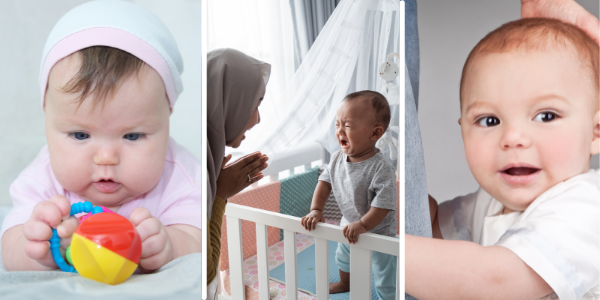
As they progress through their cognitive leaps, they see the world through new eyes and experiment like a little scientist. It's worth downloading the Wonder Weeks app and/or referring to the book to understand the leap that your baby is experiencing as they are experiencing it. It's fascinating to notice the changes in your baby after the clouds clear from a leap and test out the play ideas to see your baby's new skills emerging as they change how they see and interact with the world around them.
To make things complicated, at around 8 months, separation anxiety can start and continue, reaching its peak in babies aged 14-18 months. Celebrate each cognitive leap by reminding yourself how much they are changing and learning, and how each stage passes like a season (even if it feels like it will last forever).
Social development
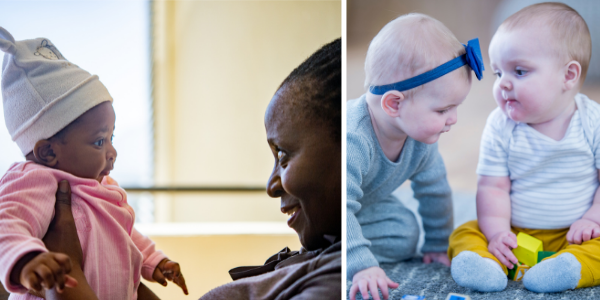
Your baby is developing socially, increasing their understanding and responsiveness to language and increasing their skills in communicating their needs and wants.
If there is a noise, they will notice, find and focus on the source of the voice or noises. Experiment with making different volume noises to see what they notice - keep an eye out for any changes in their hearing as ear infections can cause temporary hearing loss, which can affect their speech and language development if it goes unnoticed for significant periods.
They will start to respond and recognise familiar words, maybe attempting simple sign language, gesturing to communicate, and experimenting with the sounds they can make to attempt first words. Your baby will benefit from you talking and interacting with them, and you can learn some simple baby sign language to help your baby with their communication while still learning verbal skills. It can feel like you are the narrator for your baby's daily life story, and you will feel like the crazy lady who talks to herself. Keep remembering that their mind is soaking up all the language they are being exposed to, and even though they are not talking back yet, it is all contributing to their language development. At this age and beyond, they will delight in all sorts of music, action rhymes, songs and games.
Be warned, however, that whilst you might be desperate for your baby to start talking, by the time they get the hang of it, you will be wondering what you worried about and wondering how you raised such a chatterbox who doesn't seem to take a breath! It's a 'be careful what you wish for' scenario, but at the same time, you wouldn't change it and wouldn't wish for them to experience delays in their language and speech and need therapy down the track.
Ultimately, it's your job to guide, support, open up the world to, and 'experience with' your baby. This time in their lives and within the first 5 years is to sponge learn about the world and experience the world through their body. The more sensory-rich and physical experiences you can facilitate with and for your baby, the better. Through experience, your baby is developing an understanding and mastery of their body and their place in the world. Play is your baby's essential work and there's so much they can teach us in the process.
Sensational stuff!
Written by Anna Noud
Anna is a mother of 2 boys and an Occupational Therapist, holding a Bachelor of Occupational Therapy with Honours from the University of Newcastle, NSW, Australia. A lifelong learner with a passion for everything health-related and a drive to improve the lives of Mothers and the babies who will be the leaders of our future. The most important asset we have in this life is our health, well-being, and happiness. Writing for BabyPeg is a passion project alongside life tripping in the caravan, parenting, and working as an OT to help people with disabilities fulfill their potential. Find me on LinkedIn or message me through the BabyPeg Facebook page.
Please note: Above all, any information on this website aims to provide general ideas for informational and educational purposes only. We encourage users to investigate several information sources, including, where necessary, independent individualised medical advice before making any decisions that could affect you or your child’s health or wellbeing.
* BabyPeg participates in various affiliate programs and may earn a commission for referring our users through the links provided. This is at no additional cost to our users. We take great care in choosing products and services which align with the mission of promoting better health and wellness for our BabyPeg community. Where possible, products are tried and tested by us. To continue to provide BabyPeg as a free service and reach as many parents as possible, we appreciate your support in using the link provided to purchase if you decide the product is right for you.
